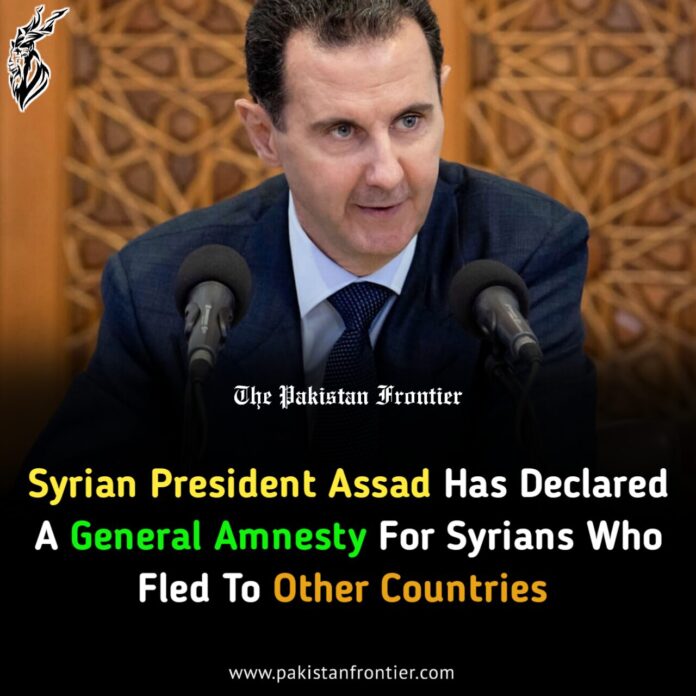Damascus, Syria – In a surprise move, Syrian President Bashar al-Assad issued a legislative decree on Sunday, granting a general amnesty to individuals who deserted or were charged with minor offenses prior to September 22, 2024. The decree, reported by the state news agency SANA, aims to reintegrate individuals who committed lesser crimes into Syrian society.
The amnesty decree provides full pardons for internal and external desertion under Syria’s military penal code, as well as minor offenses and violations. However, serious crimes that compromise public safety and state security, such as bribery, forgery, public indecency, and specific types of theft, are excluded from the amnesty.
Additionally, fugitives or those in hiding must surrender within three months for internal desertion cases and four months for external desertion to benefit from the amnesty.
This amnesty decree may have far-reaching consequences for Syria’s social and economic landscape. Analysts suggest it could encourage deserters to return and reintegrate into society. Furthermore it can help reduce the number of prisoners and alleviate pressure on the justice system. The success of the decree can help the nation move towards national reconciliation and stability.
The move is seen as a strategic effort to address some of the consequences of Syria’s decade-long civil war. A war, which has resulted in significant human displacement, economic devastation, and social unrest.
Syrian officials hailed the decree as a “humanitarian gesture” aimed at promoting unity and stability. However, opposition groups and human rights organizations remain skeptical, citing concerns about accountability.
Syria ‘s Decree And Likely International Response
“This amnesty raises concerns about impunity and the lack of accountability for serious human rights abuses,” said a spokesperson for the Syrian Human Rights Network.
The international community has yet to formally respond to the decree. Diplomats and experts are closely monitoring the situation. The decree is potentially beneficial against concerns.
The United Nations has called for a comprehensive and inclusive peace process in Syria. However, it remains to be seen how this amnesty decree will impact those efforts.
The Syrian government will likely face scrutiny over the implementation and scope of the amnesty. Observers will watch closely to see how the decree affects the country’s stability and reconciliation efforts.
